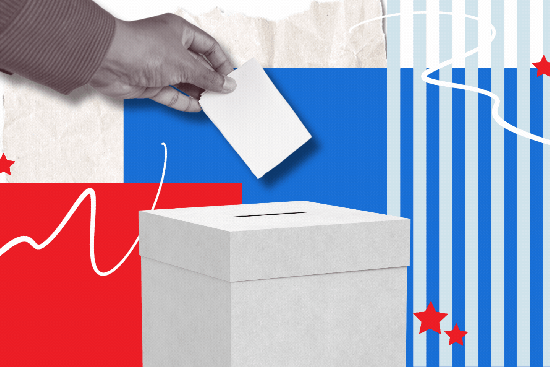
The list shines a spotlight on leaders who are working to boost voter participation, reverse disenfranchisement, and combat misinformation.
While many Americans may have Nov. 5, Election Day, circled on their calendars, the presidential election is already well under way. In-person voting has started in Pennsylvania, perhaps this year’s most-contested state. It will begin this month in four others, ranging from Minnesota to Vermont. Absentee ballots for military and overseas voters are required to be mailed out by Sept. 21. In truth, “Election Day” is now months long.
But, though the past three elections witnessed historically high turnout, polls still show widespread unease among Americans about the integrity of our election system. Satisfaction with how democracy works in the U.S. is at an all-time low. The second assassination attempt on former Donald Trump is yet another example of the precarity of our political moment. We know that unease has spread among Americans about the durability of democracy, a sentiment that crosses party lines and chips at the foundation of what many believe makes America an example to the world.
[time-brightcove not-tgx=”true”]Trump has been the loudest voice questioning the integrity of our vote, including doing so in TIME’s interview with the candidate in April—but the fears of many voters go beyond any single candidate. Social media silos are deepening. The spread of artificial intelligence makes it ever easier for foreign misinformation campaigns to spread. Local news deserts widen, harming our ability to find trusted information about candidates as well as providing voters with reliable guidance on the nuts and bolts of our elections.
To do our part to encourage civic participation, we are launching a new initiative called TIME Votes. This fall, TIME’s reporters and editors will be publishing a series of articles explaining how America’s electoral process works and how readers can best participate in it. These stories will provide basic information about voting and the differences across each state. We’ll be publishing guidance meant to help readers become more informed observers of the political process on topics like fundraising and polling. At the same time, our political reporters will be traveling the country with the candidates and speaking to voters to best understand the issues that will determine their votes.
We also know that the work of encouraging civic participation and trust in our democratic process ultimately comes down to each of us, so we are launching our Democracy Defenders initiative, shining a spotlight on leaders who are working to boost voter participation, reverse disenfranchisement, and combat misinformation. This includes election administrators like Wisconsin’s Meagan Wolfe, who encourages those concerned about the integrity of the vote to become poll workers themselves. “Actually going to see it for themselves does give them a lot more confidence,” she says. At Headcount, Lucille Wenegieme has her sights set on registering 520,000 young voters at venues like concerts and Major League Baseball games. Ben Nimmo is a threat intelligence investigator at OpenAI (a TIME licensing and technology partner), where he exposes covert influence operations. Together they join other inspiring state, corporate, and nonprofit leaders who are stepping up to defend our democratic process.
This is the 26th presidential election during which readers have turned to TIME. We thank you for your trust and hope to continue to live up to it.